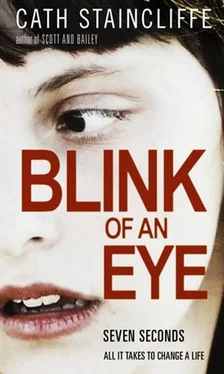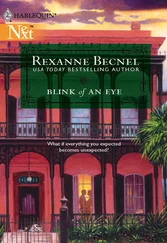Back then, when she had been drinking in college, I’d tried to work out whether we’d contributed to her unhealthy use of alcohol. Had we not sent clear enough messages, been too tolerant of stories about drunken folly or set a bad example? Alcoholism runs in families, but there’d been none of that as far as I knew in either Phil’s or mine. We didn’t drink to excess, we didn’t drink every day, but booze was a pleasure and part of our socializing.
‘Suzanne was right,’ I said. Oh God. I could feel a band of tension around my skull, and my eyes ached. ‘What’s going to happen, Phil? If she’s convicted?’ I thought of the prisons I knew, of how grim life was inside them. ‘The drink – that’ll add to any jail term.’
Why? demanded a voice in my head; why, why, why? Why had she been so stupid? To risk everything, to take a life for the sake of a couple of drinks.
We were all subdued, our talk desultory as we wandered around the country park near Suzanne’s house, taking turns to push Ollie in his pram. Suzanne hadn’t said much when I told her she’d been right about Naomi drinking, that she was over the limit. Just dipped her head once in acknowledgement, drew in her lips in a little moue of disapproval. I was glad she hadn’t launched into any attack or analysis; I don’t think I could have stood it.
The time stretched out, painfully slow. Phil kept checking his phone as if we’d not all hear it when it rang. Back at Suzanne’s we had a cuppa and some fancy ginger cake she’d bought, and Phil’s phone finally went off, making me jump, splashing some of my drink over the side of the cup.
Phil answered, listened. I saw a spasm of disappointment tighten his face, and then he said, ‘We’ll see you there.’ He put his phone down. ‘They’ve charged her, causing death by dangerous driving.’ He cleared his throat. ‘Released her on bail. They’re going back to the house now.’
‘Oh God,’ Suzanne sighed, and fetched a cloth to mop up my spill.
I got up. There was a roiling sensation in my stomach.
As we reached Mottram Lane, it was afternoon break and the children were running around in the school playground, busy knots of them in powder-blue uniforms.
Charged and released on bail . Words that I’d never imagined hearing in connection with one of my kids.
We reached home at the same time as they did. Phil made tea; we were drinking an inordinate amount of tea. I had switched from coffee not long after the accident when I found myself speeding and jittery and having trouble sleeping.
‘The basis of their case against Naomi is Alex’s eyewitness statement,’ Don said, ‘in which he describes her as driving too quickly and losing control of the car. They also have statements from other witnesses who saw Naomi drinking at the party.’ Suzanne would be one of them. ‘And the results of a blood alcohol test. Naomi had one hundred and fifteen milligrams of alcohol per hundred millilitres of blood – the limit is eighty, so she was almost one and a half times the limit.’
I saw Naomi set her jaw, head down, staring at her hands.
‘That doesn’t alter the charge,’ Don explained. ‘It will be taken into account for sentencing, but I hope we will not reach that point. We gave the police a prepared statement explaining Naomi’s persistent amnesia. We go to the magistrates’ court sometime in the next couple of weeks, but that will simply be adjourned. The prosecution need time to get all the committal papers together. The committal hearing at the magistrates’ is usually within four to eight weeks after the preliminary hearing. If you know all this, with your job, stop me…’ Don looked at me.
‘Some,’ I said.
‘But it’s all new to me,’ Phil said, ‘and Naomi.’
‘Their case rests on Alex’s account, but I don’t know that there’s anything in there that proves ,’ and he stressed the word, ‘dangerous rather than careless driving. The amnesia means it isn’t an easy case to fight, but I’d argue it’s not an easy case to prove, either. I’d be very hopeful of being able to reduce the severity of the charge or even get a not guilty result. Though there are no guarantees.’ His confidence was a lifebelt to cling to.
‘There’ll be a jury?’ Naomi asked quietly.
‘That’s right.’
‘Will Naomi be cross-examined?’ I said.
‘It’s up to us in consultation with the barrister who will take the case – I’ve someone in mind for this, he’s excellent. But given that she has no recollection of the incident, I can’t see that there’s anything to gain from putting her on the stand.’
‘What if they think she’s faking it, the jury?’ I said. ‘If she just doesn’t say anything, won’t it look bad?’ Naomi’s amnesia might be seen as very convenient. A deeper, more elaborate version of the replies used by defendants when they don’t want to admit culpability or incriminate themselves. Did you attack first? Can’t remember. Did you use a knife? Can’t remember. Did you shake your child? Can’t remember.
‘The judge must instruct them that nothing adverse can be inferred from her not taking the stand,’ Don said.
But they’re only human – they’re bound to think less of her, surely? I thought.
Don went on, ‘As for the amnesia, we will get expert testimony to speak about this as a medical condition.’
‘We know she’s not making it up,’ Phil said. ‘We just have to make it clear to them that she’s honest.’
‘If they don’t hear from her, how can they see what sort of person she is?’ I asked.
Don nodded. ‘We’ll be calling witnesses to testify to Naomi’s good character, her previous good record and so on. People who will describe her as a diligent driver, a responsible citizen.’
Naomi shuffled at this, a little awkwardly.
Naomi
‘Alex said I was okay to drive.’ I am still muddled, finding it hard to keep up with the discussion.
‘Well, there are two possibilities,’ Mum says. ‘Either you managed to act like you were sober and Alex never gave it a second thought, or…’ She hesitated.
‘Or what?’ I say.
‘Or he got in the car knowing you’d been drinking and took a chance, and then he lied about it.’
‘Why would he lie?’ I say.
‘To protect you, hoping no one would know you’d been drinking, that you’d not actually be over the limit.’
‘Or to protect himself,’ Dad says. ‘Passengers can be charged for that, can’t they?’ He looks at Don.
‘Yes, he could have been prosecuted if he knowingly got in the car with a drunk driver,’ Don says.
‘He wouldn’t have done that,’ I say. ‘He wouldn’t risk it, not when he’s going into the law.’
‘So you put on a good act, then,’ Mum says.
A wave of anger pours through me, anger at myself. ‘Why can’t I remember?’ I hit the table and put my head in my hands. Why did I do it? ‘I wish…’ Oh God. There are too many things to wish for. A whole world of them. ‘Will you ask him?’ I say to Don. ‘Is that part of what you’ll be doing?’
‘Yes, if not before the trial then once he’s on the witness stand. Because if he knew you were drunk, then he is partly culpable: why didn’t he dissuade you from driving? Did he actively encourage you? At the committal hearing we’ll get the whole case file from the prosecution, so at that stage we’ll be looking at where to direct our efforts in building a defence. There’s no point in doing anything very much until we know exactly what they’ve got both from the witnesses and from experts, forensics and so on.’
Whether Alex knew I had been drinking or not, whether he lied to protect me or lied to protect himself for not having the sense to stop me doesn’t really matter compared to the fact that I was drunk and I was driving. Whatever Alex did or didn’t do, I’m the stupid fucker who kept on drinking and then took the wheel. How could I? How could I be so stupid? Why? We could have gone out and got drunk later if it was about celebrating his job. We could have gone to the pub, or bought something to have at home, or gone clubbing even. Why couldn’t I just wait? I am so angry at myself, and not being able to remember the horrible sequence of events, not being able to relive it, leaves me feeling helpless and half mad.
Читать дальше












